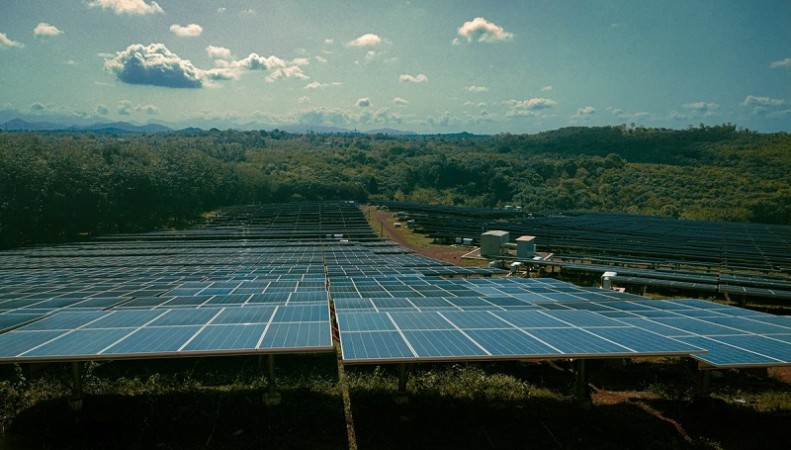
Recent efforts by the United States to bolster India's solar sector have inadvertently opened a pathway for products tainted by forced labor from China.
A comprehensive analysis of import records reveals that Waaree Energies Ltd., India's leading solar producer, has dispatched millions of solar panels to the US containing components from a Chinese company flagged for forced labor practices. These components, namely solar cells manufactured by China's Longi Green Energy Technology Co. in facilities located in Malaysia and Vietnam, find their way into Waaree panels deployed across solar farms in Texas and various other states.
This development raises concerns about the enforcement of US Customs and Border Protection measures aimed at barring products linked to human rights abuses in China's Xinjiang region. Despite thousands of shipments of solar panels from Chinese-owned companies being detained since the ban's implementation in June 2022, Waaree's panels have managed to enter the US market, indicating potential gaps in oversight.
The surge in Indian solar exports to the US, which nearly quintupled to almost $2 billion in the first 11 months of last year, underscores the growing significance of Indian suppliers in the global solar market. However, experts caution that even panels labeled as "Made in India" could still be tainted by forced labor, given the complex and interconnected nature of supply chains.
While Longi, the world's largest solar producer, remains silent on the matter, it previously asserted the establishment of a separate supply chain for the US market, sourcing materials solely from non-Chinese origins. Waaree, on its part, maintains adherence to legal requirements in its operations, stressing compliance with stringent customer demands.
The root of this issue lies in the Uyghur Forced Labor Prevention Act, passed by the US Congress in December 2021 in response to concerns over human rights abuses in Xinjiang. Despite China's denial of such violations, the US has stepped up efforts to curb imports produced using forced labor, albeit facing criticisms of selective enforcement.
Customs data reveals a significant detention of electronics, primarily solar panels, since June 2022, with approximately one-quarter of these detentions attributed to violations of the UFLPA. Notably, Indian companies have so far avoided such actions, indicating potential disparities in enforcement targeting primarily Chinese firms.
This situation highlights the complexity of global supply chains and the challenges in ensuring compliance with ethical sourcing standards. As the Biden administration seeks to reduce reliance on Chinese manufacturing, collaborations with allies like India become increasingly pivotal in fostering alternative supply chains free from forced labor. However, achieving such objectives demands robust oversight and cooperation to address existing loopholes and prevent the exploitation of vulnerable labor forces.